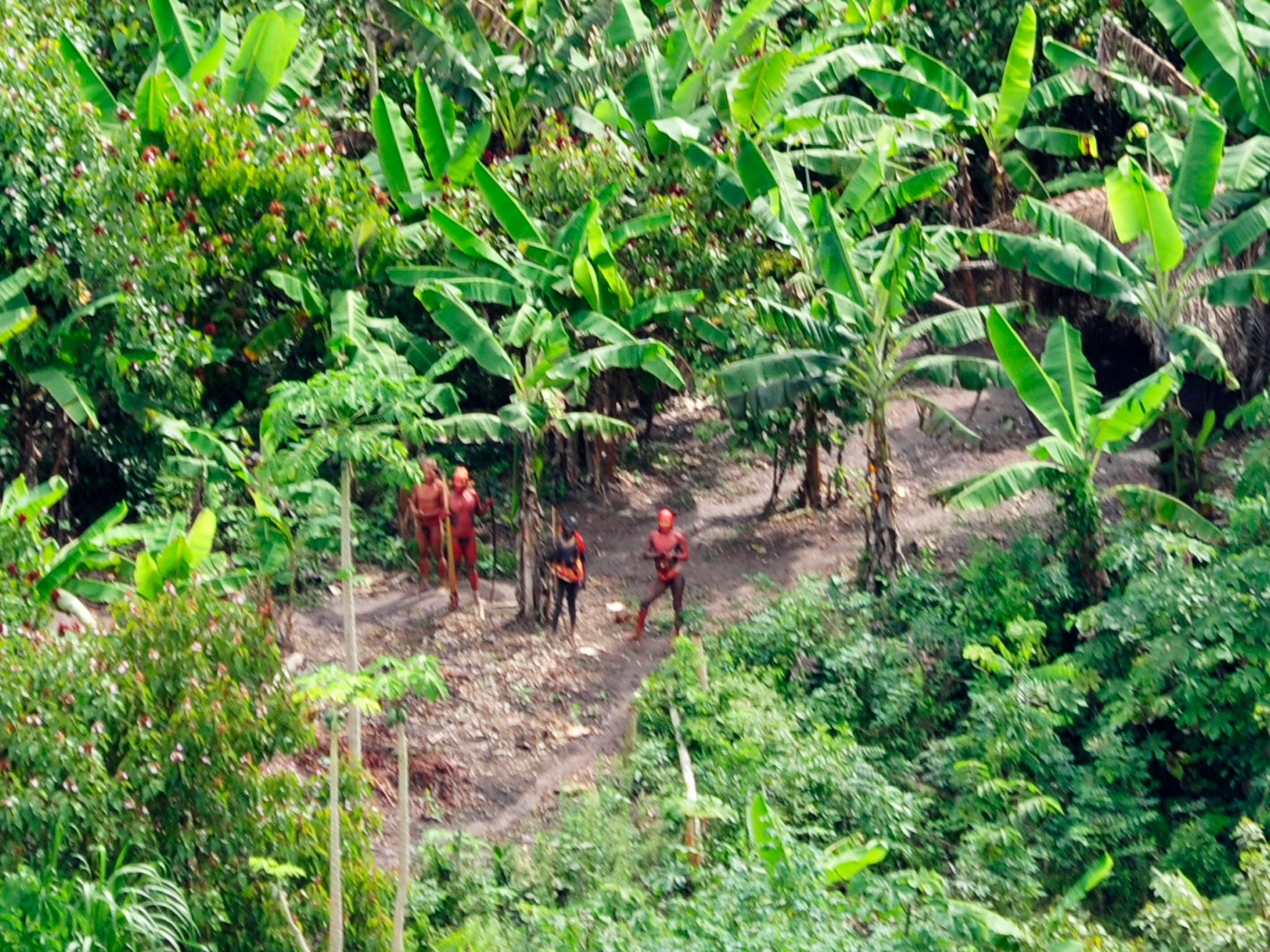American missionary accused of exposing isolated Brazilian tribe to potentially fatal diseases
‘Probability of transmission of diseases is high,’ says Brazil’s ministry for indigenous affairs

Your support helps us to tell the story
From reproductive rights to climate change to Big Tech, The Independent is on the ground when the story is developing. Whether it's investigating the financials of Elon Musk's pro-Trump PAC or producing our latest documentary, 'The A Word', which shines a light on the American women fighting for reproductive rights, we know how important it is to parse out the facts from the messaging.
At such a critical moment in US history, we need reporters on the ground. Your donation allows us to keep sending journalists to speak to both sides of the story.
The Independent is trusted by Americans across the entire political spectrum. And unlike many other quality news outlets, we choose not to lock Americans out of our reporting and analysis with paywalls. We believe quality journalism should be available to everyone, paid for by those who can afford it.
Your support makes all the difference.The Brazilian government has accused a missionary from the US of exposing an isolated indigenous tribe to potentially fatal diseases.
The Christian missionary Steve Campbell entered an area occupied by the Hi-Merimã tribe last month, one of the few dozen tribes in Brazil that has had no contact with the outside world.
“It’s a case of rights violation and exposure to risk of death to isolated indigenous population,” said a spokesman for the Brazilian government’s Indigenous Affairs Department (Funai).
“Even if direct contact has not occurred, the probability of transmission of diseases to the isolated is high.”
Mr Campbell camped in the area the Hi-Merimã occupy and invaded one of the isolated tribe's recently abandoned camping grounds, Funai said.
Little is known about the tribe, who live in the state of Amazonas. They became known for rejecting contact with the outside world and maintaining hostile relations even with other indigenous communities.
Details about what kind of penalties Mr Campbell may face are not clear. Funai has not yet notified federal prosecutors or the police, but the government agency said it will notify them this week.
According to reports from Brazilian newspaper Folha de Sao Paulo, Mr Campbell claimed to have entered the area by mistake, while teaching Indians from the neighbouring Jamamadi tribe to use a GPS device.
Mr Campbell has been living among the Jamamadi for years, but received no authorisation to do so, according to Funai officials. Attempts to reach Mr Campbell for clarification were unsuccessful.
Two months ago another US missionary, John Allen Chau, tried to contact an isolated tribe on an island in the Bay of Bengal. He was killed by the indigenous people and Indian police later abandoned efforts to recover his body.
Experts said there is an increasing likelihood of missionaries trying to contact isolated tribes in Brazil in an effort to spread their religion after Jair Bolsonaro, the Brazilian president, appointed an evangelical preacher as the new minister in charge of indigenous affairs.
During his presidential campaign last year, Mr Bolsonaro pledged to open up protected land and leave “not one centimetre” for indigenous people or quilombolas – the descendants of runaway slaves.
On Wednesday Brazil’s top prosecutor called on the right-wing president’s government to respect the land rights of 900,000 indigenous citizens, which have been threatened by a wave of land invasions since he took office.
Mr Bolsonaro has said he will not allow any new reservations and put land decisions under the Agriculture Ministry, a move that many saw as elevating farmers’ interests above those of native groups, who often make competing claims on land.
Prosecutor General Raquel Dodge said indigenous land rights were guaranteed in Brazil’s constitution and the new government must explain its intentions because the international community is concerned about the future of indigenous peoples.
“There can be no backsliding on public policies toward the indigenous people,” she said at a conference attended by representatives of some of Brazil’s 305 native tribes and advocacy groups.
Additional reporting by Reuters
Join our commenting forum
Join thought-provoking conversations, follow other Independent readers and see their replies
Comments